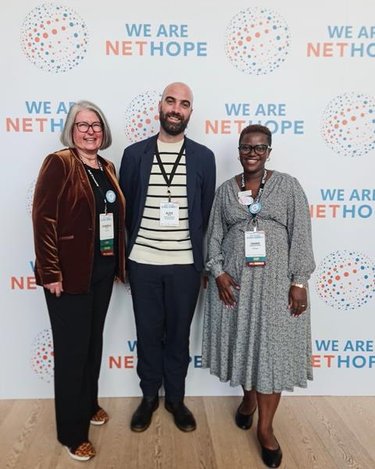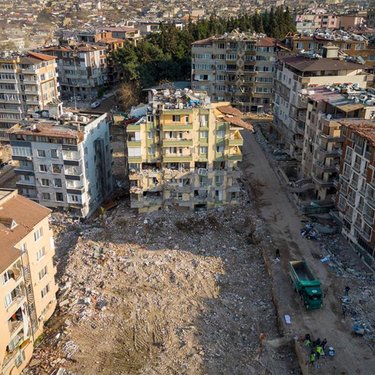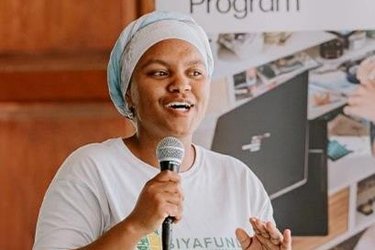A newsletter on Responsible AI and Emerging Tech for Humanitarians
We are witnessing a rise in global humanitarian needs, with over 300 million people requiring assistance by September 2024 due to conflicts, natural disasters, and economic crises. At the same time, Artificial Intelligence (AI) technology is advancing rapidly, powered by data that enables machines to process human language in ways that were once unimaginable.
This new era of AI holds immense potential for humanitarian response—improving preparedness, response and recovery, and enhancing early warning systems. However, it also introduces significant challenges, such as humanitarian surveillance, cyber threats, and bias in decision-making. The debate surrounding AI tends to be divided between “techno-optimism,” which may downplay the inherent risks of AI, and “technophobia,” which can overshadow the opportunities AI presents.
This newsletter, brought to you by the UK Humanitarian Innovation Hub (UKHIH) and Elrha, in partnership with NetHope, Humanitarian AI and Accelerat(H)er is here to help you stay up to date and navigate this complex landscape. We aim to provide you with balanced insights into how AI and other emerging technologies can be both a powerful tool and a source of ethical concern. We explore critical issues, such as aligning AI solutions with humanitarian principles, ensuring that communities can influence the decision whether or not to adopt these technologies, and how we can keep affected communities central to these innovations.
Thank you for being part of this important conversation!
Listen to the Humanitarian AI Today Podcast
A conversation hosted by Brent Phillips, with Sian White (UKHIH), Daniela Weber (NetHope) and Dan Amias (Elrha)
Learn what these organisations have done in Humanitarian AI over the past year and why they’ve joined forces to discuss AI's opportunities and challenges. This episode kicks off a series of panel discussions on common AI concerns in the sector.
🎧 Listen to Podcast or tune into the series via: itunes, Spotify.
Highlights from NetHope 2024
After attending the 2024 NetHope Global Summit in Washington, Alex Ward, UKHIH Research and Learning Manager, shares his key takeaways from an inspiring week of innovation, collaboration, and networking. NetHope brought together humanitarian agencies, government bodies, and the technology and innovation sectors to discuss a range of critical issues facing the humanitarian sector as it engages with the themes of the summit: Sustainable Technology, Artificial Intelligence, and Data and Information Governance in an ever changing and increasingly hostile world.

Editor's Choice
Articles, training courses, videos, and podcasts we think you'll find interesting.
- Community Crisis Intelligence, A free online course for humanitarians who want to learn about community intelligence and participatory AI.
- Briefing Note on Artificial Intelligence and the Humanitarian Sector, OCHA (2024) explores AI's impact on the humanitarian sector, highlighting challenges like misinformation, bias, and privacy.
- Humanitarian Aid: Considerations for the future of AI-use in Humanitarian Action, S. Spencer (2024) examines how AI boosts humanitarian efficiency and crisis response, emphasising ethical governance and accountability.
- Putting the Needs of Vulnerable Populations First, The Rockefeller Foundation (2022) explores efforts to reduce AI bias, aiming for equitable systems that serve vulnerable populations.
- Perspectives on AI from Kakuma refugee camp, Kenya, (2024) this short film explores refugee consultations on AI use and governance.
Case study: AI to improve disaster response and humanitarian aid
The SKAI project leverages artificial intelligence and satellite imagery to rapidly assess building damage in disaster-affected areas, providing critical information to speed up humanitarian responses. This tool enhances decision-making for the World Food Programme and partners, enabling more efficient allocation of resources and collaboration during emergencies.

Spotlight on… Emerging technologies in the humanitarian sector
Emerging technologies offer great potential to improve humanitarian responses, but so far, few have been widely adopted or made a big impact.
The Foresight Initiative was developed by RAND Europe together with Athena Infonomics and glasss.ai with the objective to understand trends in the use of emerging technologies in the humanitarian sector and identify emerging technologies that could strengthen humanitarian practice.
Discover the latest findings on the emerging technology landscape here and watch the webinar discussion about opportunities for responsible tech adoption and practical guidance for humanitarians looking to embrace innovation here.
Upcoming events
- The AI Summit New York, USA, 11th-12th December - The event focusses on the latest developments in AI and includes sessions on Bias and Fairness in AI Solutions and the World Bank’s vision of using AI to achieve sustainable and inclusive development goals.
- Intelligent Health, Doha, Qatar, 10th-11th December - Intelligent Health is the only summit solely focused on AI in healthcare, which may inspire faster, scalable, and cost-effective care solutions for vulnerable populations in remote or crisis-affected areas.
Get funding for your ideas
HP’s Digital Equity Accelerator offers selected organisations $100,000 capacity-building grants for nonprofits advancing digital equity in Greece, Indonesia, Nigeria, and Spain (including for humanitarian purposes). It opens for applications on the 1st November 2024 and closes on the 1st December 2024.

We want to hear your thoughts! Each month, our newsletter spotlights a new theme; next month, we will focus on “AI Transparency”. But we’re curious—what AI topics interest you most? What kind of information would support your work? Take a moment to share your thoughts by answering three quick questions here.
Mike Bugembe, Deputy Director, ICT at IOMWords are the foundations of creation - generative AI will be the next great creative revolution
Disclaimer: The views expressed in the articles featured in this newsletter are solely those of the individual authors and do not reflect the official stance of the editorial team, any affiliated organisations or donors.
